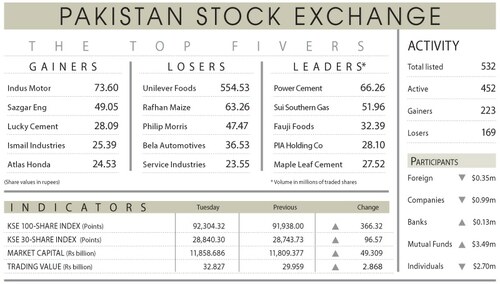The last doyen of Hindi film music — playback singer Manna Dey is no more. But he will continue to live on in mobile phones and desktops and sound systems whenever music aficionados seek solace in songs like Zindagi Kaisi Hai Paheli Hai, Ek Chatur Naar Karke Singhar, Aae Mere Pyare Watan and several others. For that’s the legacy of real artists — providing us joy, companionship and support when we direly need them.
The real tragedy is that with him comes the absolute end of the era of mellifluous music. Dey, along with his peers, was among the stalwarts of the industry who laid the foundations of good music that created an identity for India as a country of songs and dance.
The Hindi film industry, which is celebrating 100 years of cinema this year, initially had actors who sang their own songs on the screen. But as technology evolved and we started getting more and more linear actors (actors who could only act and had the most off-key voices), it became necessary to have lip-synching. It led to the birth of playback singers and the mushrooming of a gigantic film music industry.
“Music is an integral part of Indian culture. And Indian music has its own charm. It’s like an ocean from where you can pick precious gems!” — renowned music composer A.R. Rehman quoted from a recent interview
For centuries, music in the form of folk songs has been part and parcel of every aspect of life in the subcontinent. This culture is reflected in our films. In fact, one of the reasons Hindi films have become almost akin to religion are the colourful songs incorporated for every occasion.
Think of any emotion and almost everything is expressed by song. The phenomenon also transcends race, religion, creed, territorial borders, age and financial status. At some point everyone from corporate head honchos, political bigwigs to professionals (and even royalty) have wooed their future spouses with Jab Dil Hi Toot Gaya (film: Shahjehan), Itna Na Mujh Se Tu Pyar Barha (film: Chhaya), Pyar Hua Ikrar Hua (film: Shree 420), Jaane Kya Tu Ne Kahi (film: Pyasa), Abhi Na Jao Chorr Kar (film: Hum Dono), Ehsan Tera Hoga Mujh Par (film: Junglee), Arere Aray Yeh Kya Hua (film: Dil To Pagal Hai), Bahoon Mein Chale Aao (film: Anamika), Acha To Hum Chalte Hain (film: Aan Milo Sajna), Tum Hi Ho (film: Aashiqi 2) and tons of others. Most of these songs are just as popular today as they were when they first came out. The Gen-Xers may not know the names of their singers, composers or films but when it comes to romance, they know it will get the job done!
“I was really blessed that I was part of what is now known as a ‘the Golden Era of Hindi film music’ and not that of Bollywood. I don’t like that word to describe our industry!” — Manna Dey
I still remember him sitting on the lawns of his spacious bungalow in Juhu, Mumbai. It was just before he had moved house to stay with his daughter in Bangalore.
Since the first film song — De De Khuda ke Naam pe Pyaare Taaqat in the debut talkie film Alam Ara (1931) — songs became the staple diet of films. Even before Manna Dey, Hindi cinema had jewels like K. L. Saigal, Talat Mahmood, Hemant Kumar, Mohammad Rafi, Mukesh, Mahendra Kapoor and others, followed by Kishore Kumar, Kumar Sanu, Suresh Wadkar, Hariharan, Shankar Mahadevan, Sonu Nigam, Abhijeet, Shaan and of course the current crop of vocalists who are usually one-hit wonders. The women’s department of course is dominated by the Mangeshkar sisters — Lata and Asha. But much before them were trail blazers like Noor Jehan, Suraiya, Geeta Dutt, Shamshad Begum and of course the new era singers like Alka Yagnik, Shreya Ghosal, Sunidhi Chavana plus the breed of one film or one-song wonder women playback singers.
Heads of music companies are now shying away from buying the rights of new Hindi film songs. “Why should we spend crores of rupees on songs which have a recall value of two days,” they argue
The common feeling in the industry is that the last of the names of the singers which will be known will be that of Shaan. After that every other film will have a new singer as the music directors look for fresh voices and no singer will become the voice of an actor like we had M. Rafi for Dilip Kumar, Shammi Kapoor, Rajendra Kumar, Shashi Kapoor, Mukesh; and Manna Dey for Raj Kapoor, Dev Aanad, Manoj Kumar and of course Kishore Kumar for Rajesh Khanna. For a few years there was Abhijeet and Sonu Nigam for Shah Rukh Khan but now it can be anyone whom the composer picks on a given day.
Music composer Annu Malik once said, “We can compose similar songs like Naushadji, Madan Mohanji, S. D. Burmanji, Anil Biswasji and others of that era. But who will sing those songs? Where do we have that class of singers?”
In these days of songs like Bhaag D. K. Bose, Lungi Dance, Chipkale Fevicol Se and Munni Badnaam Hui becoming instant hits how can the baton be passed from singers, lyricists and composers who were immortalised by songs like Zindagi Bhar Nahin Bholenge and Ek Shahenshah Ne Banwa Ke Haseen Taj Mahal? The era of mellifluous melodies ends with the death of Manna Dey.

















































Dear visitor, the comments section is undergoing an overhaul and will return soon.